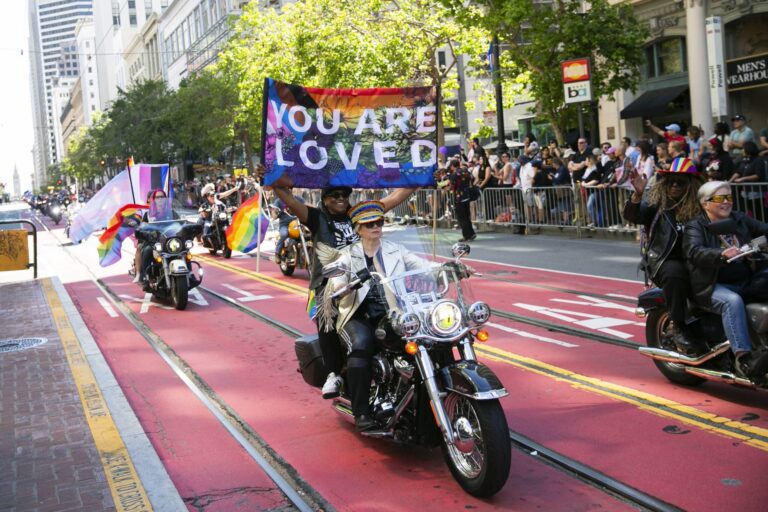Adapting Pride Celebrations Amid Declining Corporate Sponsorships
Financial Challenges Facing Pride Events in the Wake of Corporate Pullback
As Pride Month nears, organizers across the United States are confronting substantial financial hurdles due to a marked reduction in corporate sponsorships. Many prominent companies that historically provided robust backing for LGBTQ+ events are retreating from their commitments, influenced by evolving political climates and heightened scrutiny of diversity initiatives. This withdrawal jeopardizes the breadth and inclusivity of Pride festivities, which have traditionally depended on corporate funding for essential expenses such as permits, security, and community outreach.
In response, organizers are pivoting towards grassroots solutions and strengthening ties with local enterprises to bridge the funding gap. Notable approaches include:
- Launching crowdfunding initiatives to mobilize direct community support
- Collaborating with LGBTQ+-owned small businesses to reinforce local economic solidarity
- Relying on volunteer-led operations to minimize costs and foster community engagement
| Funding Source | Average Support (2019-2021) | 2023 Contributions | Percentage Change |
|---|---|---|---|
| Large Corporations | $1.2M | $500K | -58% |
| Local Businesses | $300K | $450K | +50% |
| Individual Donors | $200K | $350K | +75% |
| Government Grants | $150K | $120K | -20% |
Consequences of Diminished Corporate Funding on Pride Organizations and Events
The retreat of corporate financial support has significantly impacted community groups that depend heavily on private funding to orchestrate Pride celebrations. With fewer resources available, many organizations are forced to scale back event programming, curtail outreach initiatives, and reduce vital educational efforts. These cutbacks not only shrink the size of festivities but also threaten the inclusivity and visibility that Pride events have championed for decades.
Across the nation, communities report challenges such as:
- Insufficient funds for critical logistics including permits, security, and accessibility services
- Inability to host large-scale parades, performances, and cultural showcases
- Difficulty maintaining year-round advocacy and support programs essential to community well-being
| Area Affected | Observed Impact |
|---|---|
| Event Magnitude | Smaller parades and fewer entertainment stages |
| Community Services | Reduction in counseling and outreach initiatives |
| Volunteer Involvement | Greater dependence on unpaid labor |
| Public Visibility | Decreased marketing efforts and media presence |
Innovative Funding Approaches to Sustain and Enrich Pride Celebrations
In light of shrinking corporate contributions, Pride organizers are embracing creative financial models to preserve the vibrancy and inclusiveness of their events. Grassroots crowdfunding has gained momentum, enabling individuals to invest directly in their communities. Additionally, partnerships with local and LGBTQ+-owned businesses are fostering reciprocal support systems that prioritize community reinvestment over transactional sponsorships.
Emerging alternative funding strategies include:
- Subscription-based membership programs offering exclusive perks
- Benefit concerts and virtual gatherings that broaden audience reach and revenue streams
- Grant applications targeting human rights and cultural foundations
- Sales of branded merchandise with proceeds allocated to event funding
| Funding Strategy | Approximate Contribution | Community Benefit |
|---|---|---|
| Crowdfunding | 30% | High community engagement and ownership |
| Local Business Collaborations | 25% | Boosts local economy and visibility |
| Grants & Foundations | 20% | Supports long-term event sustainability |
| Events & Merchandise | 15% | Expands cultural outreach and funding |
| Membership Programs | 10% | Generates consistent revenue streams |
Calls to Action: Strengthening Pride Through Public and Grassroots Engagement
Community leaders and grassroots organizers are urging increased public involvement to counterbalance the funding void left by major corporations withdrawing from Pride sponsorships. Many local Pride events face uncertain futures as financial constraints threaten their ability to offer inclusive programming and safe environments. Organizers stress that donations, volunteerism, and partnerships with small businesses are now more vital than ever to maintain the spirit and impact of Pride celebrations.
Ways the public can contribute meaningfully include:
- Making direct donations via crowdfunding platforms
- Volunteering for event planning, logistics, and outreach
- Collaborating with local vendors for sponsorships or in-kind support
- Amplifying Pride narratives and advocacy through social media channels
| Type of Support | Immediate Effect | Long-Term Advantage |
|---|---|---|
| Financial Contributions | Fund event logistics and operations | Enhance community partnerships and trust |
| Volunteer Participation | Ensure smooth event execution | Develop local leadership and skills |
| Local Sponsorships | Increase available resources | Establish sustainable funding networks |
Looking Ahead: The Future of Pride Funding and Community Resilience
As Pride Month approaches, the landscape of funding for LGBTQ+ celebrations is undergoing a significant transformation. The retreat of corporate sponsors highlights the necessity for communities to innovate and diversify their financial support systems. This pivotal moment challenges organizers to harness grassroots energy, local partnerships, and creative funding models to ensure Pride remains a powerful platform for visibility, advocacy, and celebration nationwide.
With ongoing efforts to adapt, the resilience of Pride events continues to shine, underscoring the enduring commitment of communities to uphold inclusivity and equality despite financial uncertainties.




